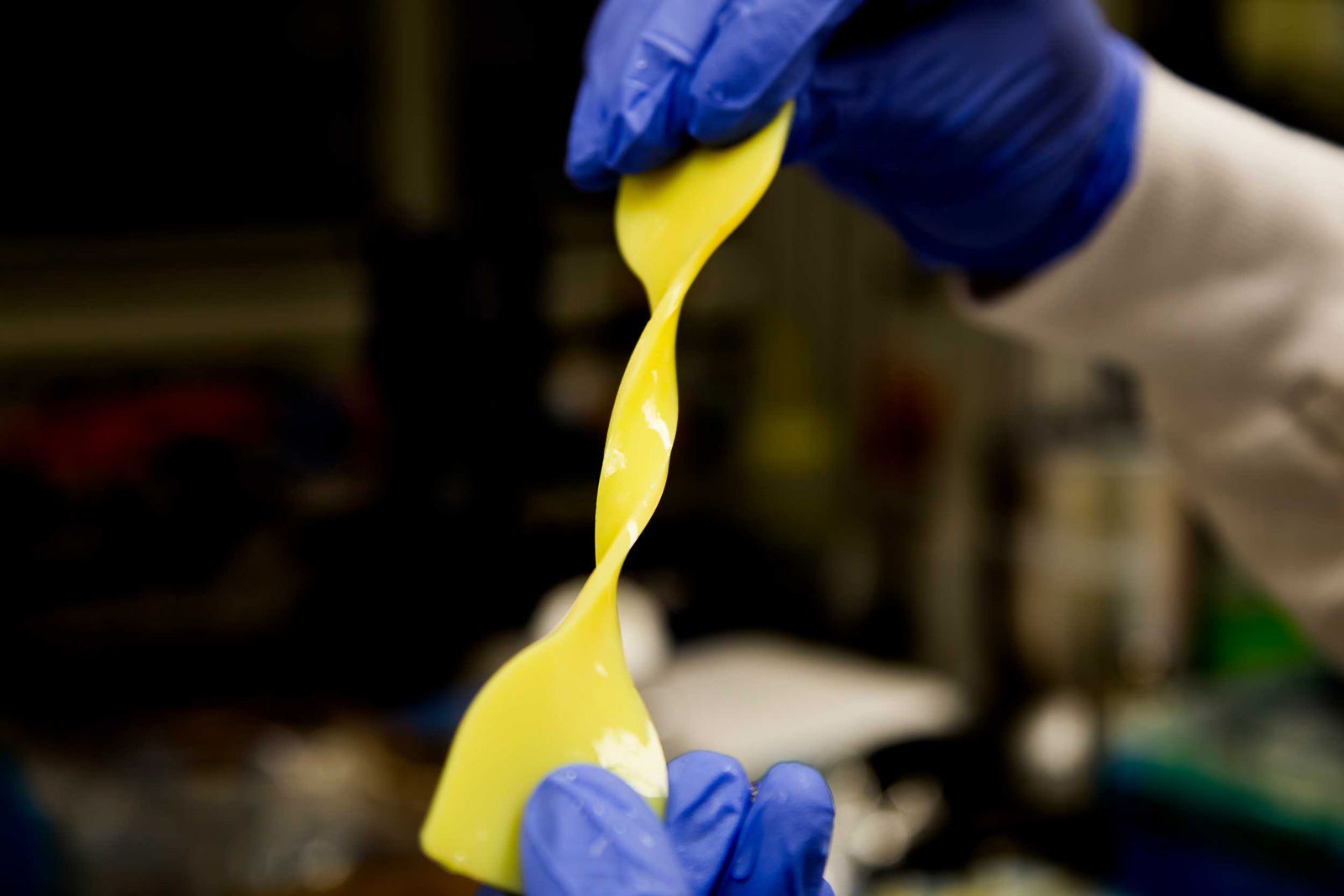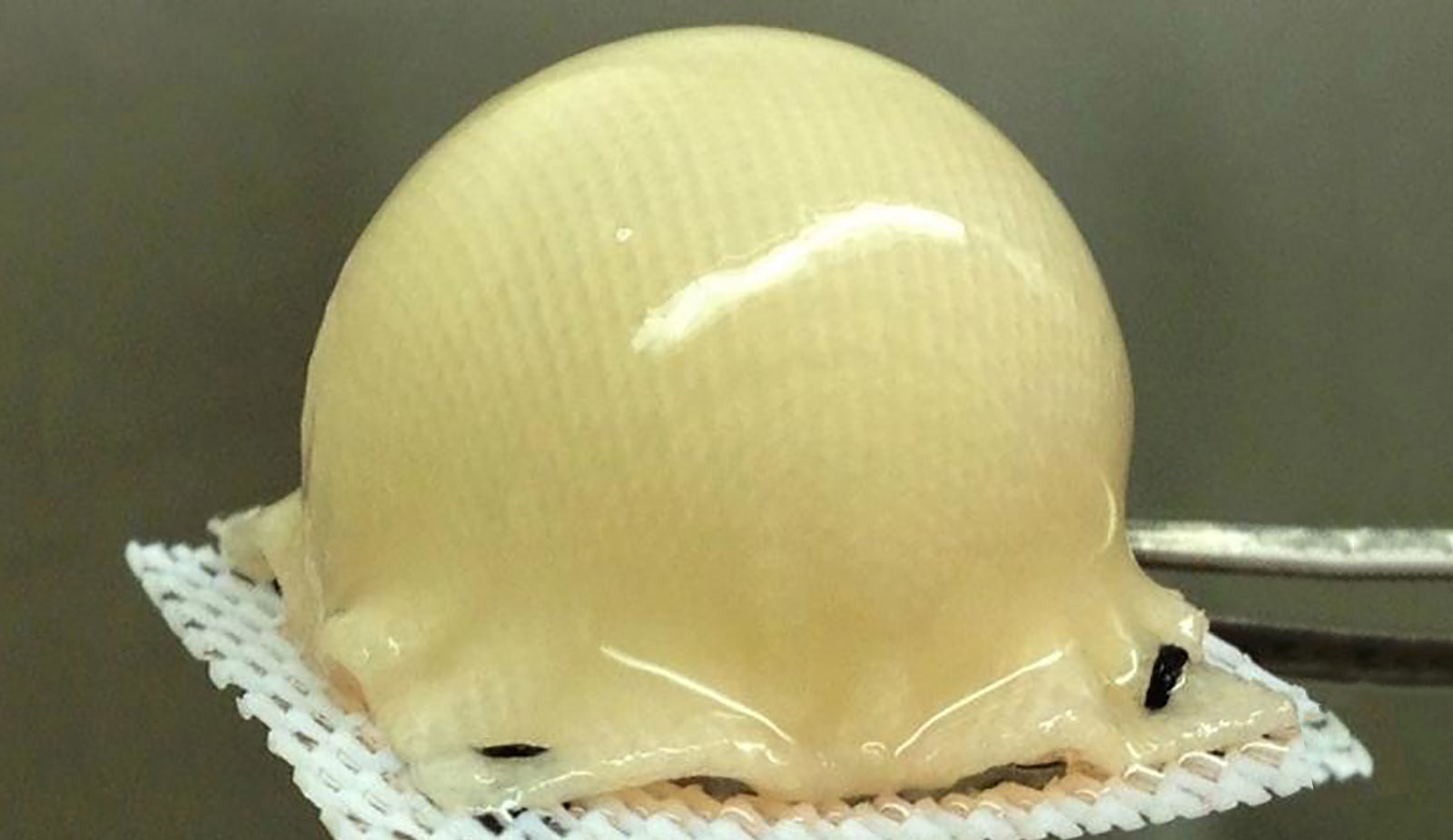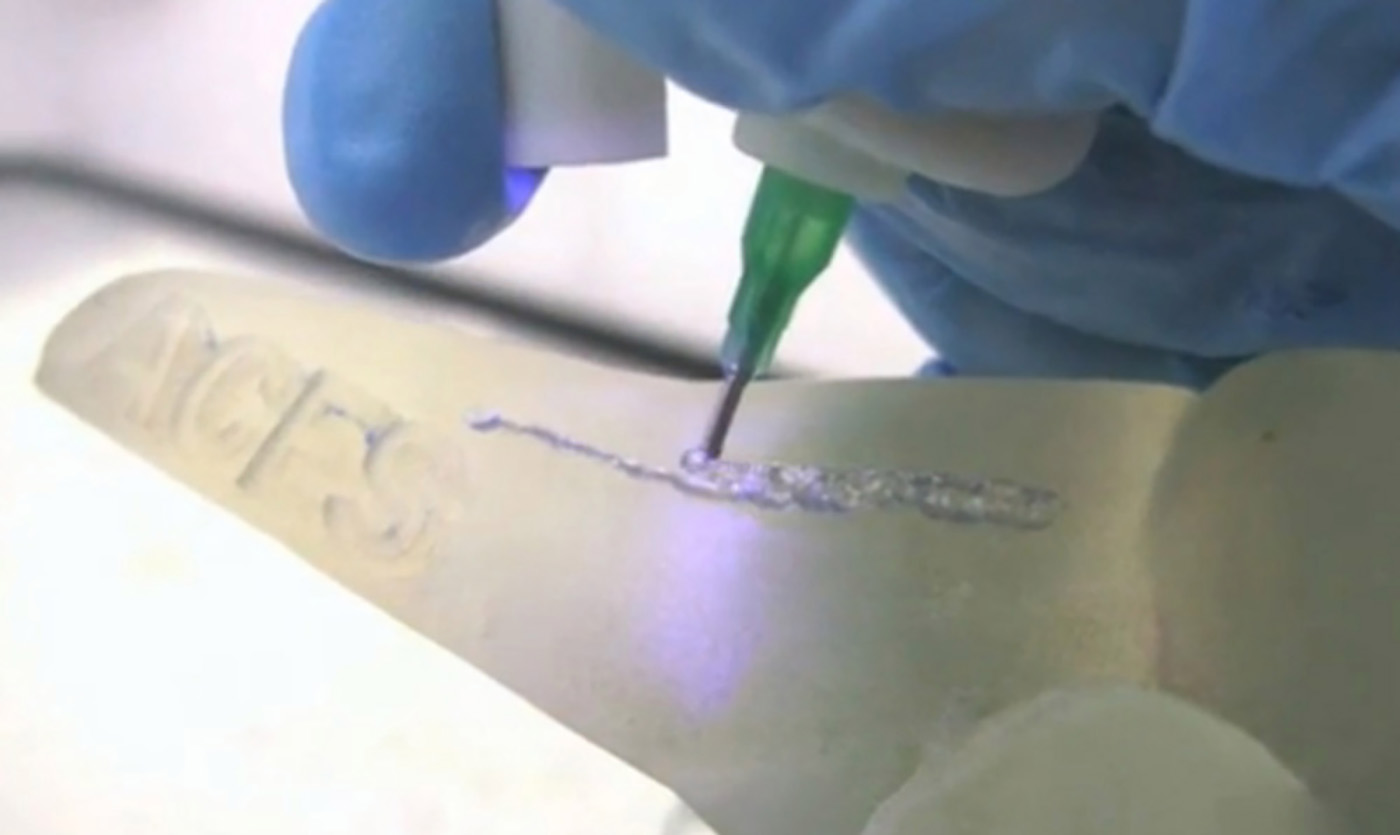
Most of the attention surrounding 3D printers in medicine has focused on patching up our outsides, whether it's making skin to heal wounds or restoring the use of limbs. The Wake Forest Institute for Regenerative Medicine has just detailed a technique that could go considerably deeper. By mixing natural gel put through an inkjet printer with thin and porous polymer threads coming from an electrospinner, researchers have generated constructs that could be ideal for cartilage implants: they encourage cell growth in and around an implant while remaining durable enough to survive real-world abuse. Early tests have been confined to the lab, but the institute pictures a day when doctors can scan a body part to produce an implant that's a good match. If the method is ultimately refined for hospital use, patients could recover from joint injuries faster or more completely -- and 3D printers could become that much more integral to health care.
Filed under: Science, Alt
Comments
Via: Gizmag
Source: Institute of Physics
 Believe it or not, scientists are still discovering new forms of stem cells -- and these latest examples could shake up how doctors treat a multitude of common injuries. A Stanford-led research team has identified the human skeletal stem cell, helpin...
Believe it or not, scientists are still discovering new forms of stem cells -- and these latest examples could shake up how doctors treat a multitude of common injuries. A Stanford-led research team has identified the human skeletal stem cell, helpin...
 Believe it or not, scientists are still discovering new forms of stem cells -- and these latest examples could shake up how doctors treat a multitude of common injuries. A Stanford-led research team has identified the human skeletal stem cell, helpin...
Believe it or not, scientists are still discovering new forms of stem cells -- and these latest examples could shake up how doctors treat a multitude of common injuries. A Stanford-led research team has identified the human skeletal stem cell, helpin...
 It can be difficult to fully recover from knee injuries or other damage to your joints, if just because there hasn't been an artificial replacement for cartilage that can withstand as much punishment as the real thing. That may not be an issue in th...
It can be difficult to fully recover from knee injuries or other damage to your joints, if just because there hasn't been an artificial replacement for cartilage that can withstand as much punishment as the real thing. That may not be an issue in th...
 Doctors want to 3D print transplantable organs from your own stem cells, but now they might be able to replace a bum hip, too. A team of scientists in St. Louis and Durham used stem cells to grow cartilage on a 3D "scaffold" that can be molded into t...
Doctors want to 3D print transplantable organs from your own stem cells, but now they might be able to replace a bum hip, too. A team of scientists in St. Louis and Durham used stem cells to grow cartilage on a 3D "scaffold" that can be molded into t...
 Today on In Case You Missed It: Stanford's National Accelerator Laboratory is upgrading a laser beam to make it the brightest X-ray laser in the world, enabling all sorts of as-yet unseen science. Popular Chinese phone maker Xiaomi makes a ceramic-...
Today on In Case You Missed It: Stanford's National Accelerator Laboratory is upgrading a laser beam to make it the brightest X-ray laser in the world, enabling all sorts of as-yet unseen science. Popular Chinese phone maker Xiaomi makes a ceramic-...
 If you need knee replacement surgery in the future, doctors may be able to create a custom-made joint from your own stem cells. A team from St Vincent's Hospital, Melbourne, have developed the Biopen, a type of 3D printer that uses "ink" made from h...
If you need knee replacement surgery in the future, doctors may be able to create a custom-made joint from your own stem cells. A team from St Vincent's Hospital, Melbourne, have developed the Biopen, a type of 3D printer that uses "ink" made from h...
